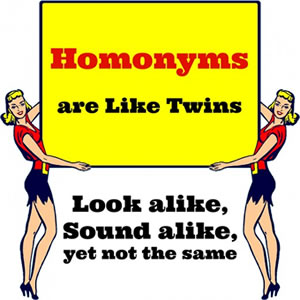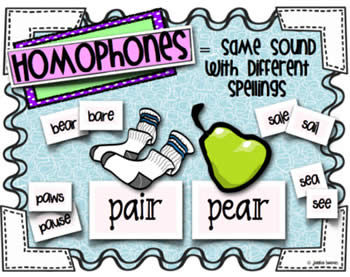Difference between Homonym and Homophone
Key Difference: Homonym refers to the words in the English language that share the same spelling and the same pronunciation but different meaning. Homophone are words in the English language that share the same pronunciation but different meanings. These words may share the same spelling or they may have different spellings.
 Although one vaguely remembers hearing homonym and homophones when they were in school way back when, they must have forgotten what they mean by now. These words are now commonly used by linguistics and teachers and are useful when trying to understand the English language. However, what do they mean? While they sound quite similar, they actually differ from each other vastly.
Although one vaguely remembers hearing homonym and homophones when they were in school way back when, they must have forgotten what they mean by now. These words are now commonly used by linguistics and teachers and are useful when trying to understand the English language. However, what do they mean? While they sound quite similar, they actually differ from each other vastly.
The prefix homo- is derived from the Greek word Homos, which means ‘one and the same’. So, both the words describe a certain sameness in the language. Let’s break down both the words and understand their etymology; it should help in understanding the word better.
The word homonym breaks down into homo + nym. As previously mentioned, ‘homo’ means ‘same’ and ‘nym’ is the Latin root for ‘word’ or ‘name’. When translated the word literally means ‘same name’. This can provide a little hint as to the definition of the word. As the translation suggests, homonym refers to the words in the English language that share the same spelling and the same pronunciation but different meaning. These includes words such as plane (aircraft) or plane (geometric figure) or can (may) or can (a tin can of soup).

Now the word homophone can be broken down to homo + phone. The word ‘phone’ is derived from the Latin root ‘phōnḗ’, which means “voice.” When added to homo or same, it can be understood that it refers to similar or same voice or pronunciation. The term homophone is correctly defined as words in the English language that share the same pronunciation but different meanings. These words may share the same spelling or they may have different spellings. These include the most common ones such as to, too, two or their and there.
Another little confusing aspect is that all homonyms are homophones because they sound the same. However, not all homophones are homonyms because of the difference in terms of spelling.
Comparison between Homonym and Homophone:
|
|
Homonym |
Homophone |
|
Definition |
Words in the English language that share the same spelling and the same pronunciation but different meaning |
Words in the English language that share the same pronunciation but have different meanings. These words may or may not have the same spelling |
|
Spelling |
Same |
Can be same of different |
|
Meaning |
Different |
Different |
|
Pronunciation |
Same |
Same |
|
Example |
Fair (country fair) or fair (reasonable) |
Pair (a couple) and pear (a fruit) |
Image Courtesy: catherinegiordano.hubpages.com, mrktms.weebly.com









Add new comment